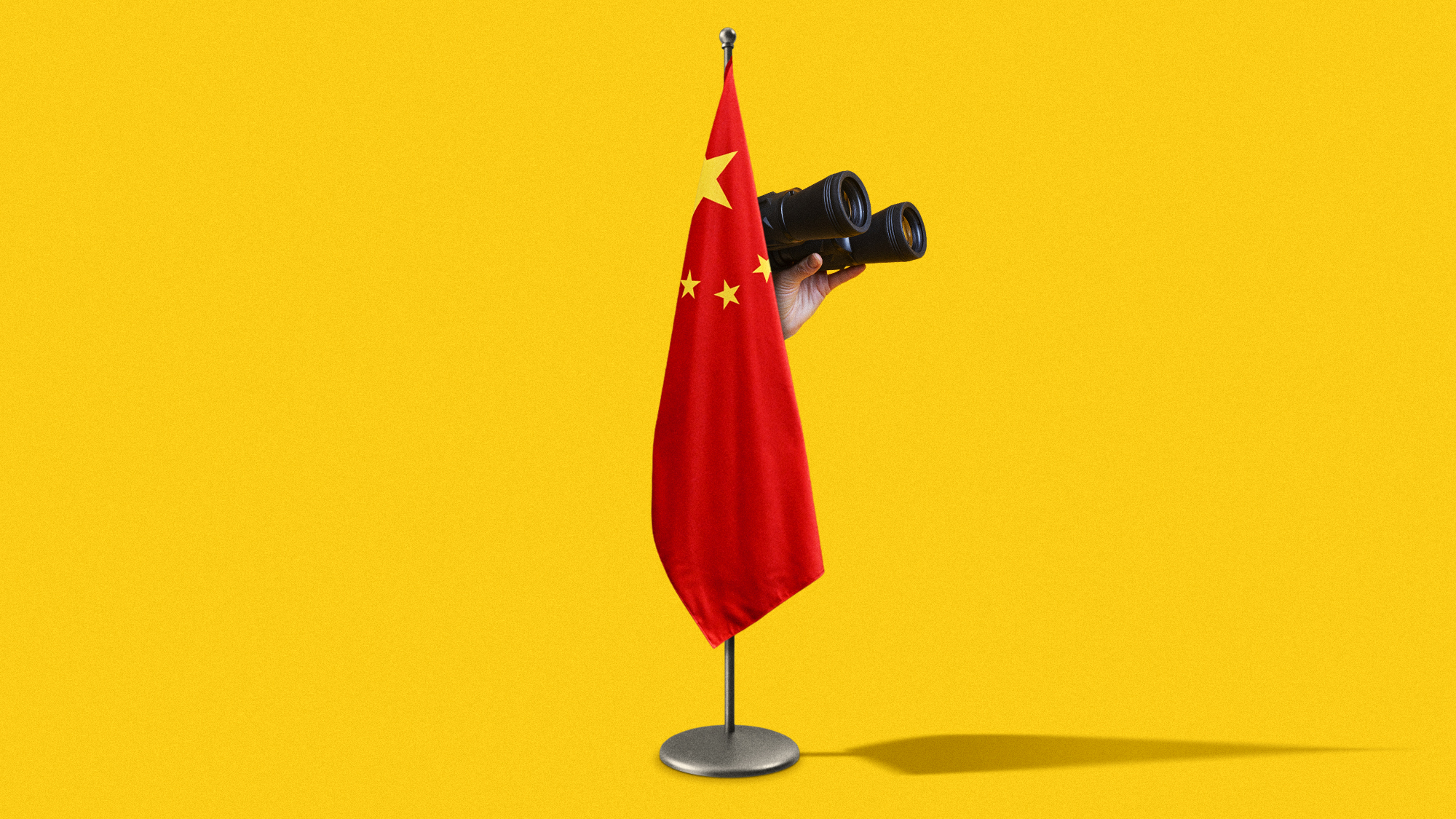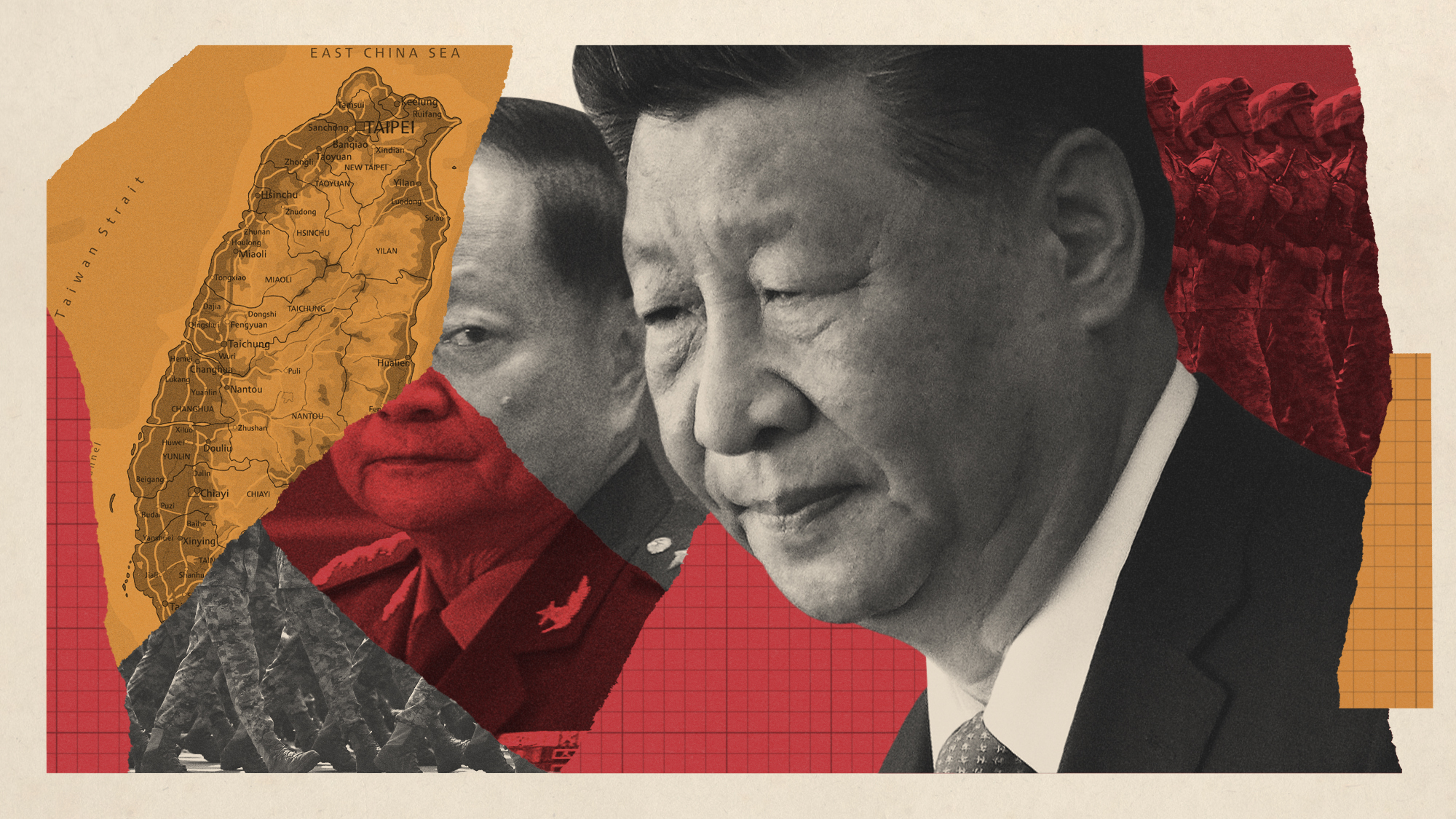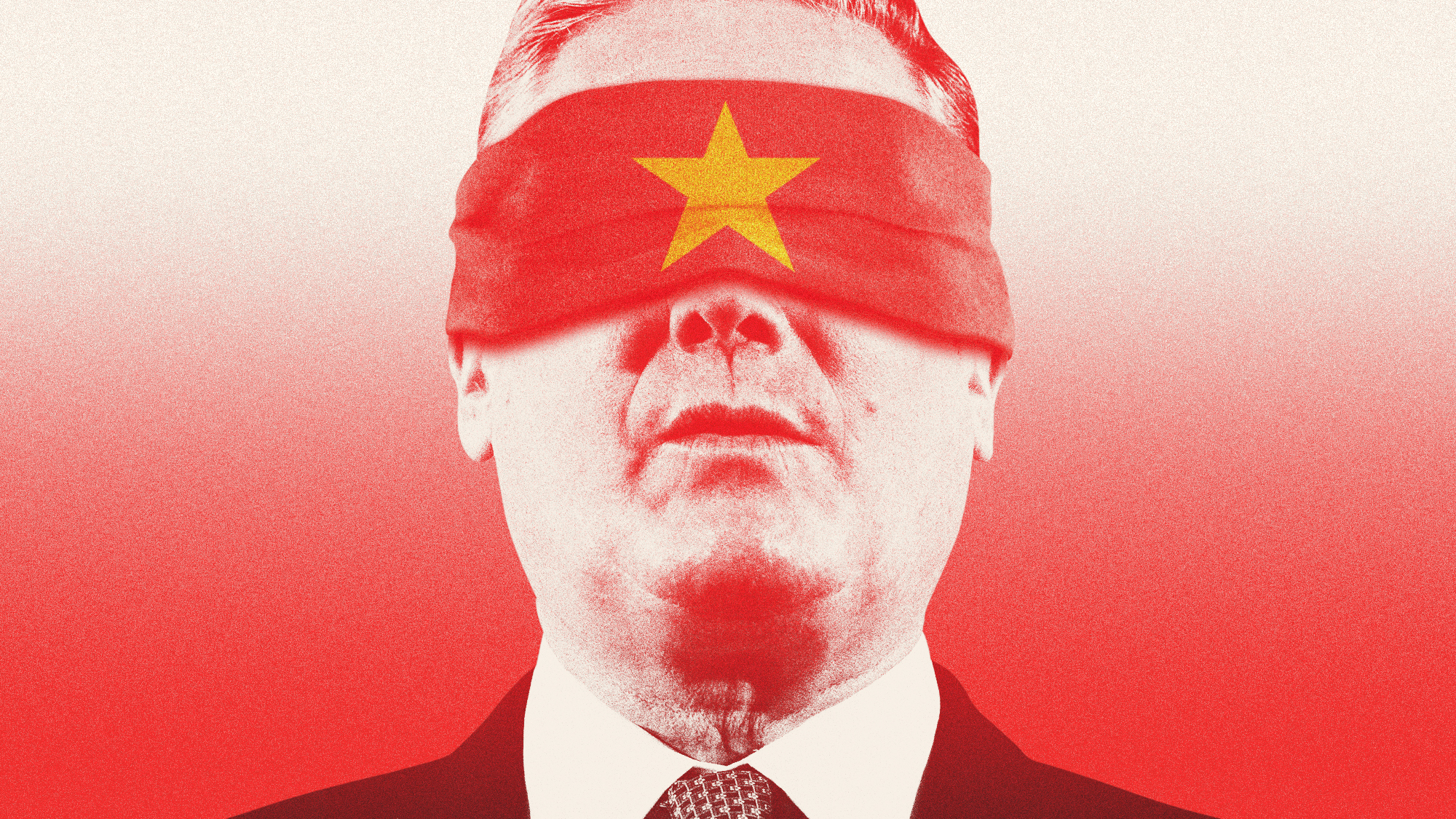Who are China’s Westminster spies?
MI5 warns of civilian ‘headhunters’ trying to ‘cultivate’ close contacts of MPs and peers

A free daily email with the biggest news stories of the day – and the best features from TheWeek.com
You are now subscribed
Your newsletter sign-up was successful
MI5 has warned MPs and peers that they and their staff are at high risk of being targeted by Chinese intelligence, after two agents who posed as headhunters to target aides and close contacts of lawmakers were named by the security service.
Along with the rise of the internet, the “growing influence of this vast superpower is one of the two stand-out global changes of the last 30 years”, said BBC political editor Chris Mason. And indeed, “some of the most acute challenges” from Beijing arise “when both of these mega-trends of the early 21st century combine”.
How do they operate?
Unlike the other recent Westminster China spy scandal, this case involves the use of “civilian recruitment headhunters”, who MI5 said were being deployed by the Chinese Ministry of State Security to target people “one step removed” from high-priority targets.
The Week
Escape your echo chamber. Get the facts behind the news, plus analysis from multiple perspectives.

Sign up for The Week's Free Newsletters
From our morning news briefing to a weekly Good News Newsletter, get the best of The Week delivered directly to your inbox.
From our morning news briefing to a weekly Good News Newsletter, get the best of The Week delivered directly to your inbox.
Simon Whelband, a Conservative councillor and senior researcher for Conservative MP Neil O’Brien (who was sanctioned by China in 2021), told the BBC he was approached on LinkedIn by a profile apparently belonging to a headhunter. The profile used the name Shirly Shen, one of the two names mentioned by MI5, along with “Amanda Qiu”.
“The message wasn’t written in very good English, it was a message to say there was a job opportunity and was I interested,” Whelband said. “They have realised the way to get to parliamentarians is through their staff…it’s deeply worrying.” Less experienced staff “might think it’s a genuine offer” and engage with the catfishers.
“It is not just parliamentarians who should be concerned,” Security Minister Dan Jarvis told the Commons. “Economists, think-tank employees, geopolitical consultants and government officials” have also been approached, for their perceived access to politicians.
What are they after?
China’s security services are attempting to “cultivate” those close to lawmakers, offering them “large financial incentives for seemingly low-level information”, MI5 said. Over time, once a relationship is established, they “can encourage the target to gain access to more non-public sensitive information”.
A free daily email with the biggest news stories of the day – and the best features from TheWeek.com
In practice, that might look like offering a “lucrative fee for a paper on the government’s policy approach to a particular area or topic”, said The Telegraph. The information “might already be in the public domain, but Beijing’s agents hoped that by paying large fees, those with privileged information might be slowly led to divulge more of what they knew”.
China has a “low threshold for information it regards as valuable”, said Jarvis. This is “because over time it builds up a wider picture by piecing together the morsels it may extract from a wide range of people”, said the BBC.
What is being done about it?
Security officials told The Times that MI5’s decision to name the individuals “serves two purposes”: to identify MPs, peers or parliamentary staff who may have been drawn in; and, second, to issue what one senior government figure described as a “clear message to Beijing”. Whether such exposure deters future activity “is another question”, they said.
The government plans to take more concrete measures in the coming weeks, launching a new campaign to “disrupt and deter” espionage. In the meantime, security services have told those working in parliament to be on the lookout for “unusual questions from their colleagues or network” that could show an individual was gathering information. This includes “off the record”, “sensitive”, and “insider information”.
It means that, “for the second time this autumn, Westminster is collectively wrestling with what to do about China”, said the BBC.
-
 Political cartoons for February 19
Political cartoons for February 19Cartoons Thursday’s political cartoons include a suspicious package, a piece of the cake, and more
-
 The Gallivant: style and charm steps from Camber Sands
The Gallivant: style and charm steps from Camber SandsThe Week Recommends Nestled behind the dunes, this luxury hotel is a great place to hunker down and get cosy
-
 The President’s Cake: ‘sweet tragedy’ about a little girl on a baking mission in Iraq
The President’s Cake: ‘sweet tragedy’ about a little girl on a baking mission in IraqThe Week Recommends Charming debut from Hasan Hadi is filled with ‘vivid characters’
-
 The UK expands its Hong Kong visa scheme
The UK expands its Hong Kong visa schemeThe Explainer Around 26,000 additional arrivals expected in the UK as government widens eligibility in response to crackdown on rights in former colony
-
 ‘Hong Kong is stable because it has been muzzled’
‘Hong Kong is stable because it has been muzzled’Instant Opinion Opinion, comment and editorials of the day
-
 What do Xi’s military purges mean for Taiwan?
What do Xi’s military purges mean for Taiwan?Today’s Big Question Analysts say China’s leader is still focused on reunification
-
 What is at stake for Starmer in China?
What is at stake for Starmer in China?Today’s Big Question The British PM will have to ‘play it tough’ to achieve ‘substantive’ outcomes, while China looks to draw Britain away from US influence
-
 ‘It’s good for the animals, their humans — and the veterinarians themselves’
‘It’s good for the animals, their humans — and the veterinarians themselves’Instant Opinion Opinion, comment and editorials of the day
-
 What is China doing in Latin America?
What is China doing in Latin America?Today’s Big Question Beijing offers itself as an alternative to US dominance
-
 Is Keir Starmer being hoodwinked by China?
Is Keir Starmer being hoodwinked by China?Today's Big Question PM’s attempt to separate politics and security from trade and business is ‘naïve’
-
 Looming drone ban has farmers and farm-state Republicans anxious
Looming drone ban has farmers and farm-state Republicans anxiousIN THE SPOTLIGHT As congressional China-hawks work to limit commercial drone sales from Beijing, a growing number of conservative lawmakers are sounding an agricultural alarm